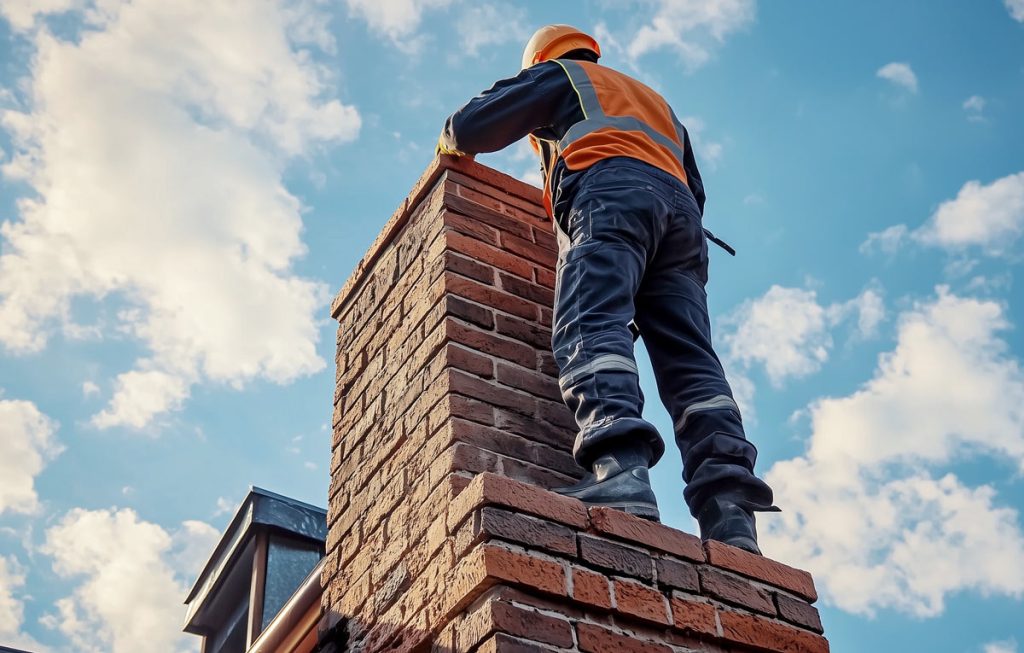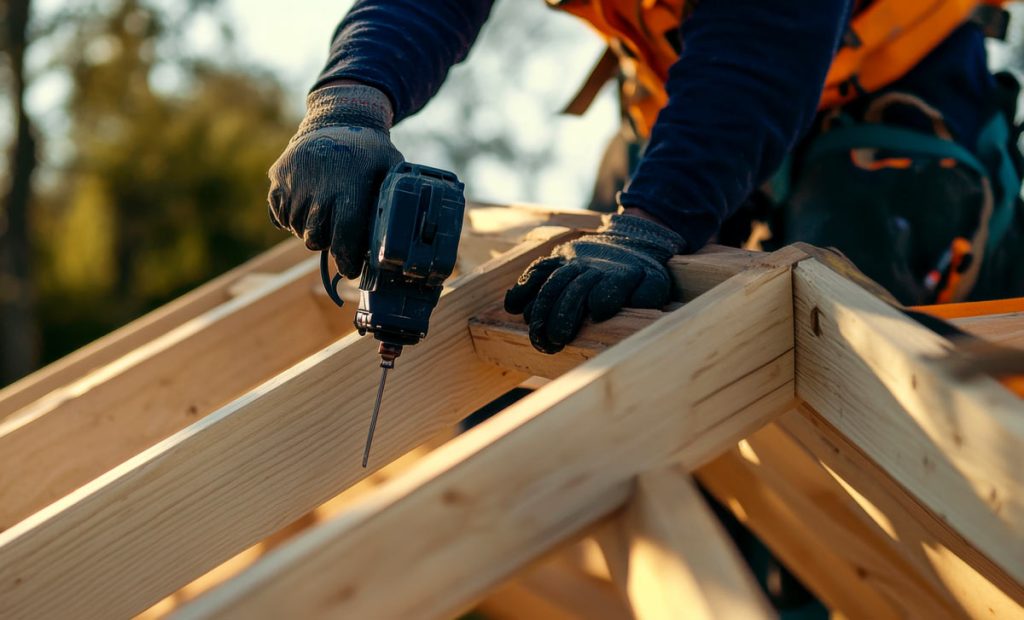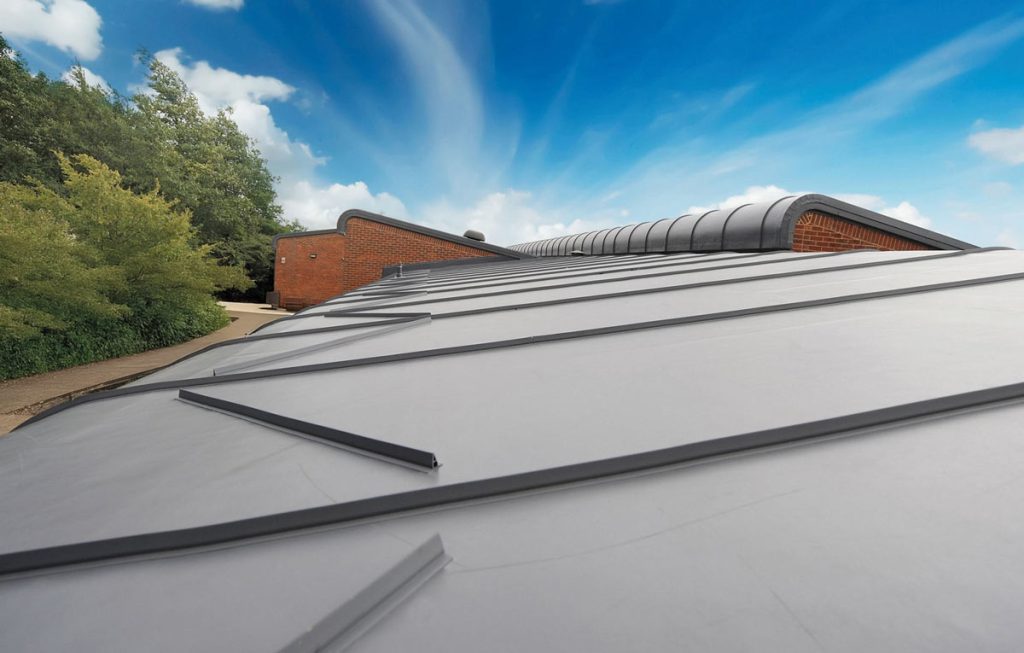When it comes to maintaining the integrity of your roof and home, chimney repairs often don’t get the attention they deserve. The chimney is an integral part of your roofing system, especially if you use it for heating, cooking, or ventilation purposes. Without proper maintenance and timely repairs, a deteriorating chimney can not only affect the performance of your heating systems but can also cause significant damage to the roof and the structure of your home. In this blog post, we’ll dive into the importance of chimney repairs, how they relate to your roof’s longevity, and why timely maintenance is essential.
The Role of Your Chimney in Roof Health
Your chimney is more than just a functional element that vents smoke from your fireplace, stove, or furnace. It also plays a vital role in maintaining the structural integrity of your home. Here’s how:
-
Weather Protection: A well-maintained chimney helps keep the elements (rain, snow, and wind) out of the interior of your home. When damaged, a chimney can let moisture seep into your roof, causing wood rot, rust, or even structural damage.
-
Ventilation and Airflow: The chimney helps expel dangerous gases and smoke from your home’s heating system. When the chimney is compromised, it can lead to poor ventilation and potential health risks, such as carbon monoxide poisoning.
-
Fire Safety: Chimneys that are not properly maintained can become fire hazards. Creosote, a flammable substance that builds up over time, can accumulate inside the chimney flue. If not cleaned regularly, it can ignite and cause dangerous chimney fires, potentially spreading to your roof and the rest of your home.
In short, your chimney’s condition is directly linked to the health of your roof. Problems with your chimney can quickly escalate into roofing issues if not addressed promptly. Regular chimney inspections and repairs are essential to ensure your entire roof system remains intact.
Signs Your Chimney Needs Repair
Chimney damage can be gradual and easy to overlook. However, there are a few warning signs that indicate it’s time for repairs. Keeping an eye out for these signs will help you address potential issues before they escalate:
-
Cracked or Missing Mortar: The mortar around the chimney’s brickwork is crucial for holding everything together. If you notice cracks or missing mortar joints, it’s a sign that your chimney is deteriorating and may need repointing or rebuilding.
-
Water Damage: Water damage around the chimney or on the roof near the chimney stack is a clear indicator of a problem. Water can penetrate the chimney and seep into the roof, causing damage to the structure and promoting mold growth.
-
Rust or Corrosion: Rust on the chimney’s cap, flashing, or other metal components indicates that moisture has infiltrated the chimney system. Corrosion can weaken the chimney’s structural integrity and compromise the roof.
-
Leaking or Staining Around the Chimney: Water stains or leaks inside the house around the chimney area often signal that the flashing (the metal pieces that seal the chimney to the roof) has failed. This can lead to significant water damage, affecting both the chimney and roof.
-
Cracked or Damaged Chimney Crown: The chimney crown is the topmost part of the chimney that seals it against the elements. If it’s cracked or damaged, rainwater can seep inside, leading to damage in both the chimney and roof.
-
Chimney Leaning or Tilting: If your chimney appears to be leaning or tilting, this could indicate structural issues. This type of damage can compromise the roof and should be addressed immediately by a professional.
How Chimney Repairs Impact Roof Longevity
The chimney is intricately connected to the roof, and any issues with the chimney can lead to more significant roofing problems over time. Here’s how chimney repairs affect the overall longevity of your roof:
1. Preventing Water Damage
The most common problem caused by a deteriorating chimney is water penetration. If the flashing or the chimney crown is damaged, rainwater can infiltrate your roof, causing significant damage. Over time, water can erode the roof decking, weaken the rafters, and promote mold or rot in the attic. If left untreated, this damage can lead to expensive repairs or even the need for a full roof replacement.
2. Reducing the Risk of Roof Fires
Chimney fires are more common than many homeowners realise. Creosote buildup in the chimney can ignite due to the high heat from the fireplace, stove, or furnace. This fire can spread from the chimney to the roof, causing severe damage to the structure of your home. Regular chimney inspections and cleanings are crucial to preventing these dangerous fires, which can extend the lifespan of your roof and prevent the need for costly repairs.
3. Maintaining Proper Ventilation
A compromised chimney can lead to poor ventilation in your home, especially if there’s blockage or damage in the flue. Without proper ventilation, your heating system may not function efficiently, leading to excess moisture and condensation buildup inside your home. This moisture can negatively affect the roof, encouraging mold growth, which can weaken roof materials and compromise your roof’s integrity.
4. Preventing Structural Damage
When a chimney begins to lean or shift due to structural issues, it can create additional pressure on the roof’s framework. This added stress can lead to cracks in the roof structure, damage to roofing tiles, or even sagging. A leaning chimney also creates gaps that can let water enter the roof, leading to additional damage over time. Timely repairs can prevent these issues from spreading and help protect the overall structure of your home.
5. Maintaining Aesthetic Appeal
Chimney damage isn’t just a functional problem—it can also be an aesthetic one. Cracked bricks, missing mortar, or a leaning chimney can make your home look unkempt. In some cases, chimney damage can even affect the curb appeal of your home, reducing its market value. Maintaining your chimney ensures your home retains its value and looks appealing both inside and out.
The Importance of Timely Chimney Maintenance
Timely chimney repairs can save you from more extensive (and costly) damage down the line. Regular chimney maintenance not only helps keep your roof in good condition but also ensures the safety and efficiency of your heating system. Here are a few reasons why timely chimney repairs are crucial:
-
Cost Savings: Small repairs are typically much more affordable than major roof or chimney overhauls. Catching issues early can help avoid expensive emergency repairs, such as replacing large sections of the roof or chimney. Timely maintenance helps you stay ahead of the curve and budget for repairs gradually.
-
Safety: A well-maintained chimney is a safe chimney. Neglecting chimney repairs can lead to dangerous issues, such as chimney fires, carbon monoxide buildup, and roof damage. By addressing problems early, you protect your home and family from potential hazards.
-
Increased Roof Lifespan: When you take care of your chimney, you also protect your roof from unnecessary wear and tear. Maintaining your chimney prevents water infiltration, reduces fire risk, and protects the roof from long-term damage, ensuring it lasts for many years.
-
Peace of Mind: Regular chimney inspections provide peace of mind knowing that your home is safe and that your roof and chimney are in good condition. This helps avoid unexpected repairs or surprises down the line.
Conclusion
Chimney repairs play a crucial role in the overall longevity and health of your roof. Timely maintenance not only prevents water damage, chimney fires, and structural issues but also helps ensure your home remains safe, functional, and aesthetically appealing. Regular chimney inspections and prompt repairs can save you money, reduce risks, and ultimately extend the lifespan of both your chimney and roof.
If you notice any of the warning signs mentioned above, it’s crucial to contact a professional roofing and chimney repair specialist. Addressing issues early will protect your home and give you the peace of mind you need. Proper chimney care isn’t just about preserving your chimney—it’s about safeguarding the entire roofing system and ensuring your home’s longevity.




